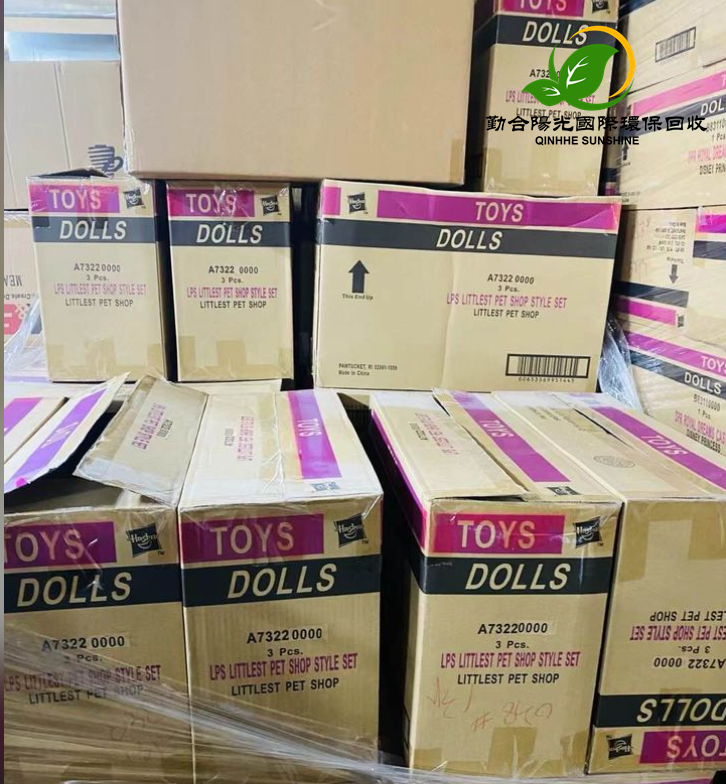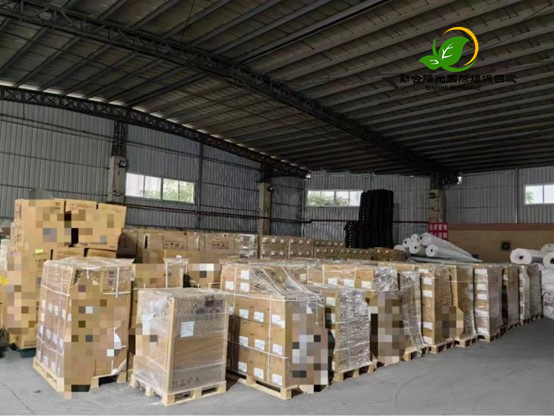Inventory Recycling: Optimizing Resource Allocation and Achieving Sustainable Development
In today's highly competitive market environment, enterprises are faced with enormous pressure in inventory management. Excess inventory not only ties up a large amount of capital but may also lead to resource waste and environmental pollution. Therefore, as an effective means of resource optimization, inventory recycling has gradually gained the attention of enterprises. This article will explore the significance, methods of inventory recycling, and its contributions to the sustainable development of enterprises.
Significance of Inventory Recycling
Cost Reduction
Excess inventory means a large amount of capital is tied up, and enterprises need to pay for warehousing, insurance, and other expenses. Through inventory recycling, enterprises can reuse or dispose of slow-moving or obsolete products, reducing capital occupation and lowering operating costs.
Improvement of Resource Utilization Rate
Inventory recycling helps enterprises re-evaluate and utilize existing resources, avoiding waste. Through recycling, refurbishment, or remanufacturing, enterprises can transform old products into new ones, extending the product life cycle and improving the resource utilization rate.
Reduction of Environmental Impact
Excess inventory often leads to products expiring or being damaged, and ultimately being discarded, causing environmental pollution. Inventory recycling can reduce the generation of waste, decrease the negative impact on the environment, and promote the green and sustainable development of enterprises.
Methods of Inventory Recycling
Internal Consumption
Enterprises can consume part of the inventory through internal promotions, employee benefits, and other means. For example, using slow-moving products as employee rewards or for internal sales can not only reduce inventory but also enhance employee satisfaction.
Secondary Sales
For out-of-season or obsolete products, enterprises can conduct secondary sales through methods such as discounted sales and bundled sales. In addition, products can also be sold to consumers in need through e-commerce platforms, second-hand markets, and other channels.
Recycling and Remanufacturing
For products that cannot be directly sold, enterprises can consider recycling and remanufacturing. By disassembling, refurbishing, or reprocessing, old products can be transformed into new ones and reintroduced to the market. This method not only reduces resource waste but also creates a new source of revenue for enterprises.
Donation and Public Welfare
Enterprises can donate part of their inventory to charitable organizations or use it for public welfare projects. This can not only reduce inventory pressure but also enhance the social image of the enterprise and strengthen brand influence.
Challenges and Countermeasures in Inventory Recycling
Recycling Costs
Inventory recycling may involve costs such as transportation and processing, and enterprises need to weigh the economic benefits of recycling. To this end, enterprises can optimize the recycling process, choose recycling methods with lower costs, such as cooperating with third-party recycling agencies, to reduce recycling costs.
Product Quality
The quality of recycled products may vary, affecting consumers' willingness to buy. Enterprises should establish a strict quality control system to ensure that the quality of recycled products meets the standards and maintain the brand reputation.
Laws and Regulations
Different regions have different legal and regulatory requirements for inventory recycling, and enterprises need to comply with relevant regulations to avoid legal risks. To this end, enterprises should strengthen communication with government departments, understand, and comply with relevant laws and regulations.
Conclusion
Inventory recycling is not only an important means for enterprises to optimize resource allocation and reduce costs but also an important way to achieve sustainable development. Through reasonable inventory recycling strategies, enterprises can improve resource utilization rates, reduce environmental impacts, and enhance their social images. In the future, with the increase in environmental awareness and the progress of technology, inventory recycling will play an increasingly important role in enterprise management. Enterprises should actively explore and practice effective methods of inventory recycling to contribute to sustainable development.
我的WhatsApp:69536972-郵箱:martin.hyq88@gmail.com香港回收销毁免费咨询热线:13377641657香港电话:00852-69536972,期待您的来电,共同开启环保与价值并存的新篇章!


 繁體中文
繁體中文 简体中文
简体中文 English
English




 咨询热线
咨询热线 公司邮箱
公司邮箱 地址导航
地址导航

